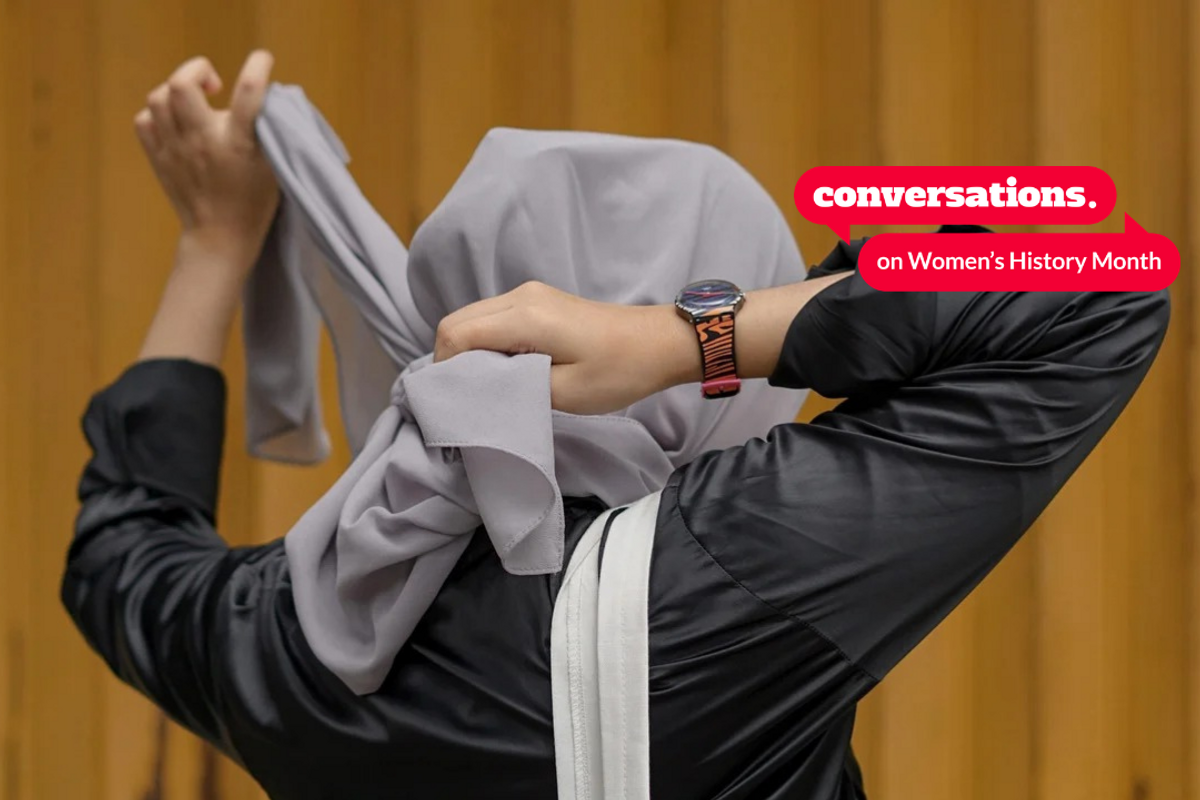Why Women’s History Month reminds us to celebrate the extraordinary women in our own lives
Women are often inspirational figures despite their stories not being widely shared.
Sometimes, I feel like we shouldn't need Women's History Month because women are already a part of history. But, reflecting on when I studied history at school, only a handful of women were discussed.
History often appears to be about war and politics in which men are overrepresented. So, where are the women?
Women are often inspirational figures despite their stories not being widely shared or recognised. I was reminded of this when hearing about my late aunt, Salima Akhtar, an ordinary Muslim woman who lived in Pakistan.
As an independent woman and doctor, she would go out in her long cream coat and niqab, working and running her own errands as well as looking after her family home. One particular story about her stood out for me.
The Ahmadiyya Muslim Community is small and persecuted by many other Muslims worldwide, but especially in Pakistan, where Ahmadi Muslims are restricted in their job prospects. They can be arrested just for declaring themselves Muslim and have been beaten and even murdered just for their faith.
Laws have been passed, as well as smaller actions in local communities. One such action in 1974 was a social boycott in Sargodha in Punjab. Muslim clergy led the followers into picketing the homes of Ahmadi Muslims, preventing them from coming and going freely for three months.
It is traditional to have a stock of essentials such as rice and tea, but after a while, it becomes difficult to carry on without fresh supplies, and many families faced a hard time during this time shut away in their homes.

Salima was a doctor working at a hospital during this time and would leave the family home to go to the hospital. The picketers would stop all cars leaving, so she would go on foot. On her way home, she began to visit shops to buy groceries, leaving with supplies of milk, eggs and flour.
Before reaching home, she hid her purchases under her coat and shawl, so nothing was obviously visible to those picketing, and they would let her pass – no one could refuse this imposing personality!
In this way, with this seemingly small action, she helped her family and also her neighbours to get through this difficult time. Having seen footage over the years of angry mobs whipped up by clergy in Pakistan, Salima's story illustrates the courage she had to keep her family going.
Additionally, another family who experienced the boycott spoke about how a Christian woman, the wife of a local clergyman, would help them by smuggling food during quiet times.
They remember her with affection to this day.
War and politics are all very well, and I love history in all forms, but we should also celebrate the ordinary inspirational women who keep the world going.
Their stories should be the ones that illustrate the reality of life, so it's a great opportunity to use Women's History Month to do that and show just how extraordinary the ordinary women in our lives really are.
Have you got something to say about Women's History Month? Submit a post to Conversations for the chance to see your writing here.


